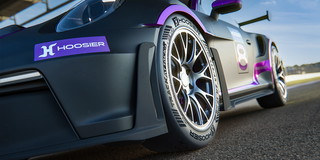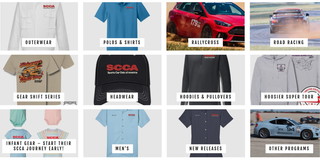
Stopping is a necessary evil of motorsports. We all want to go fast, but to accomplish that, you need brakes that keep you out of trouble. This applies to road courses, autocrosses, RallyCrosses, and RoadRallies, but it’s especially true when getting to the SCCA® event in the first place – doubly if towing.
“Let's be clear: Every vehicle that rolls new off the lot and every set of brake pads and rotors new out of the box provide standard, adequate stopping power,” Hawk Performance (the official Brake Products of SCCA) notes in an extensive blog post covering, among other things, brake considerations while towing. “The important question every truck, Jeep, and SUV owner needs to ask themselves is if ‘adequate’ is really good enough. Unless it’s strictly smooth sailing on quiet streets that never pose stop-and-go surprises, avoid hilly terrain, and there’s absolutely nothing in that truck bed, the answer is most likely no.”
SCCA members don’t just push the limits of their vehicles, we’re the edge case – the exception to the rule. When it comes to towing, Club members will find a way to push any weight limit. According to Hawk’s article, when increasing overall vehicle weight by roughly 10 pounds, stopping efficiency can decrease by up to one percent. Towing your competition car to an SCCA event for a fun weekend with an extra set of wheels and tires, a jack, toolbox, and essential spares? That’s 40 lbs. per wheel and tire combo, 30 lbs. for the jack, and at least 80 lbs. in tools and spares – it adds up quickly. And none of this counts the weight of the trailer and car strapped to it, with that combo running anywhere from 3,000 to 15,000 lbs., depending on the setup.
“Additional weight and excessive heat go hand in hand as the two enemies of stopping effectiveness,” Hawk states. “Vehicles like trucks and Jeeps are heavy to start with, and their standard braking systems are designed to handle that, but not much more. Mass in motion generates kinetic energy, and friction converts that energy into heat. Any added weight from modifications or towing and hauling demands increase a vehicle’s kinetic energy, requiring increased braking force to slow the vehicle. If not properly dissipated from the entire wheel and brake system, the heat generated from the intensified friction of the components rubbing together reduces the efficacy and efficiency of the entire system.”
What can be done to keep your tow setup under control? Read Hawk’s article to find out, then click around on Hawk’s website to discover a brake pad solution that’s right for you.
Photo by Scott Dobler II / Staff










